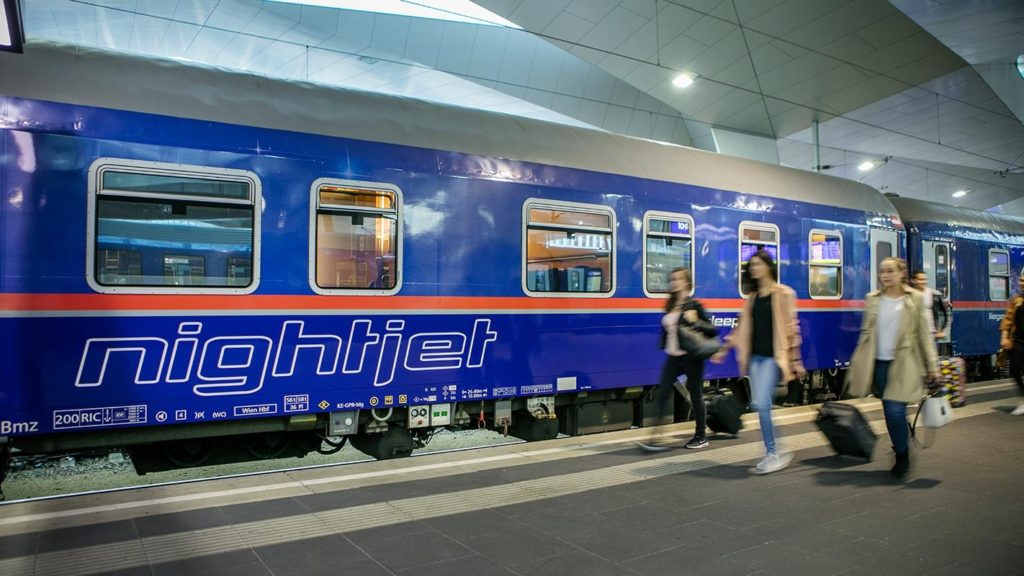The Federal Government will provide financial support to night train operators with at least one stop in Belgium with the aim of making Brussels an "international rail hub," announced Federal Mobility Minister Georges Gilkinet.
The night train connection (Nightjet) that has been operating between Brussels and Vienna since 2020 is a great success but the number of night trains serving Belgium is growing too slowly to keep up with potential passengers. Currently, the Brussels-Vienna night train runs three times a week and is usually full.
"The success of Nightjet shows the potential of travelling like this between European capitals. This is one of the reasons why I proposed this law, [which is] a European first," Gilkinet said in a press release on Wednesday.
The Federal Government wants Belgium to play a leading role in the European ambition to develop more and faster international rail connections between major European cities. "We want to make a real international rail hub. Despite the enthusiasm of travellers, the international offer is currently developing too slowly."
'Solid alternative to air transport'
On average, over 60% of Belgian residents are willing to travel by high-speed train or night train instead of by plane to reduce their ecological footprint, shows a survey by the Federal Public Mobility Service in June 2022. Petitions have been launched in several European countries in an effort to drive this; each one has gained thousands of signatures.
The European Commission has also confirmed in its Green Deal that it wants to make rail transport and night trains more attractive. Therefore, it was very important to give concrete support to all current and future European operators, "to encourage them to develop the night train offer and provide a solid alternative to air transport," Gilkinet said.
From 1 January next year until 31 December 2024, the Federal Government will bear the rail infrastructure fee, as well as the cost of transport, distribution and supply of traction power. This is necessary because a night train – which only runs once a day – is much less economically viable than a traditional train, which can run several times a day and does not need expensive sleeping quarters.
For this support, €2 million will be allocated.
Related News
- Why the promised night trains from Brussels are still just a dream
- Night train to Barcelona planned with stops in Brussels and Antwerp
- New night train from Brussels to Berlin and Prague postponed again
"In this way, we encourage train operators to expand their operations to and from our country. This can be done both by increasing the number of connections on existing routes such as Vienna, and by supporting new operators who want to start up in the short or medium term," Gilkinet said.
Interest has already been expressed in a connection between Sweden (Malmö) or Czechia (Prague) and Brussels, he said. "Other operators are considering night trains to the south in summer or to the mountains in winter. I want to send the signal that operators are welcome in Belgium."
Gilkinet added that if the plans are successful, other EU Member States may follow Belgium's lead, giving night trains an even more favourable framework and making fares even more attractive for travellers. "I am very proud that Belgium is at least playing this pioneering role."

